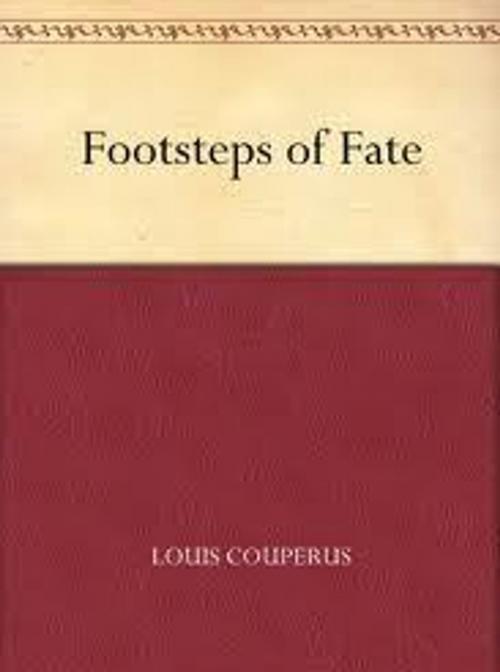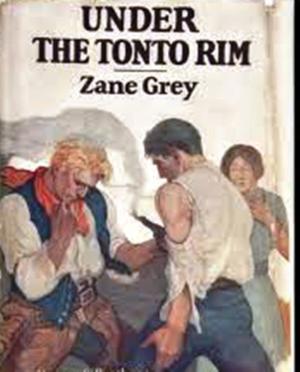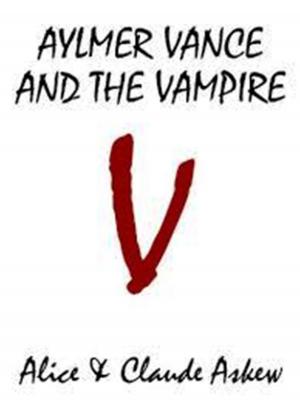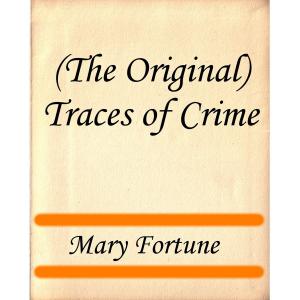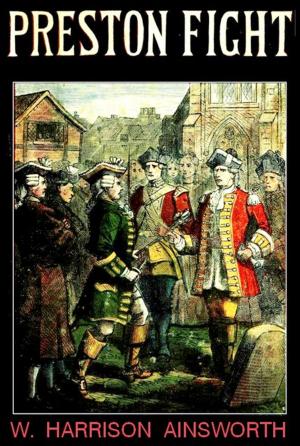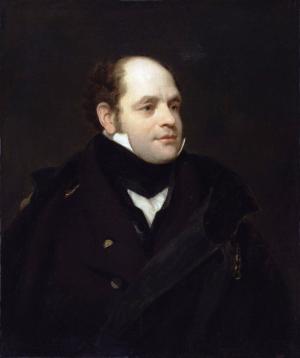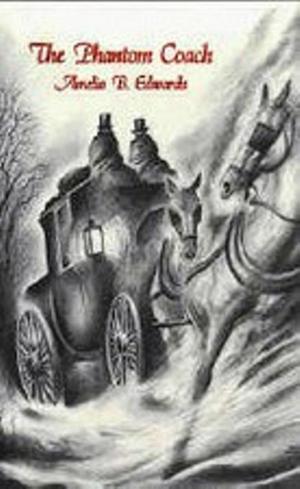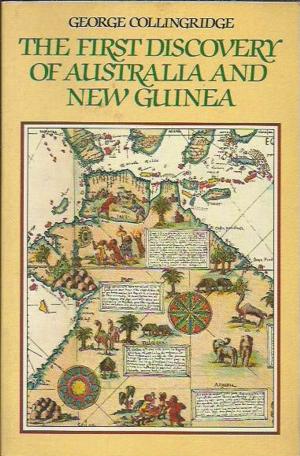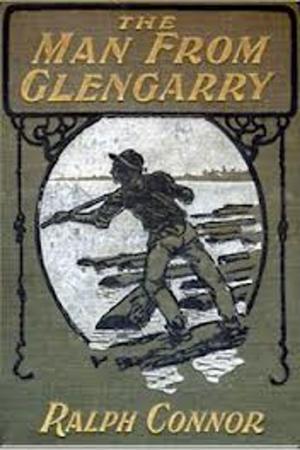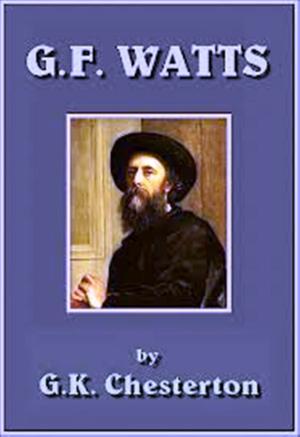| Author: | LOUIS COUPERUS | ISBN: | 1230000148952 |
| Publisher: | WDS Publishing | Publication: | July 8, 2013 |
| Imprint: | Language: | English |
| Author: | LOUIS COUPERUS |
| ISBN: | 1230000148952 |
| Publisher: | WDS Publishing |
| Publication: | July 8, 2013 |
| Imprint: | |
| Language: | English |
In the intellectual history of all countries we find the same phenomenon incessantly recurring. New writers, new artists, new composers arise in revolt against what has delighted their grandfathers and satisfied their fathers. These young men, pressed together at first, by external opposition, into a serried phalanx, gradually win their way, become themselves the delight and then the satisfaction of their contemporaries, and, falling apart as success is secured to them, come to seem lax, effete and obsolete to a new race of youths, who effect a fresh esthetic revolution. In small communities, these movements are often to be observed more precisely than in larger ones. But they are very tardily perceived by foreigners, the established authorities in art and literature retaining their exclusive place in dictionaries and handbooks long after the claim of their juniors to be observed with attention has been practically conceded at home.
For this reason, partly, and partly also because the mental life of Holland receives little attention in this country, no account has yet been taken of the revolution in Dutch taste which has occupied the last six or seven years. I believe that the present occasion is the first on which it has been brought to the notice of any English-speaking public. There exists, however, in Holland, at this moment, a group of young writers, most of them between thirty-five and twenty-five years of age who exhibit a violent zeal for literature, passing often into extravagance, who repudiate, sometimes with ferocity, the rather sleepy Dutch authorship of the last forty years, and who are held together, or crushed together, by the weight of antiquated taste and indifference to executive merit which they experience around them. Certain facts seem to be undeniable; first, that every young man of letters in Holland, whose work is really promising, has joined the camp; and secondly, that, with all the ferment and crudity inseparable from prose and verse composed in direct opposition to existing canons of taste, the poems and the stories of these young Dutchmen are often full of beauty and delicacy. They have read much in their boyhood; they have imitated Rossetti and Keats; they have been fascinated by certain Frenchmen, by Flaubert, by Goncourt, particularly by Huysmans, who is a far-away kinsman of their own; they have studied the disquieting stories of Edgar Poe. But these exotic influences are passing away, and those who know something of current Dutch belles-lettres can realise best how imperatively a ploughing up of the phlegmatic tradition of Dutch thought was required before a new crop of imagination could spring up.
Rejecting the conventional aspects of contemporary Dutch literature, I will now attempt to give some sketch of the present situation as it appears to a foreign critic observing the field without prejudice. The latest novelist of great importance was Madame Gertrude Bosboom-Toussaint, who was born in 1821. After having written a long series of historical romances for nearly forty years, this intelligent woman and careful writer broke with her own assured public, and took up the discussion of psychological questions. She treated the problem of Socialism in Raymond de Schrijnwerker and the status of woman in Majoor Frans. Madame Bosboom-Toussaint died in 1886, just too early to welcome the new school of writers, with whom she would probably have had more sympathy than any of her contemporaries. Her place in popular esteem was taken for a short time by Miss Opzomer (A.S.C. Wallis), whose long novels have been translated into English, In dagen van strijd ("In Troubled Times") and Vorstengunst ("Royal Favour"). She had genuine talent, but her style was heavy and tedious. After the new wind began to blow, although she was still young, she married, went to Hungary, and gave up writing novels.
Three authors of importance, each, by a curious coincidence, born in the year 1826, fill up the interval between the old and new generation. These are Dekker, Busken-Huët, and Vosmaer. Edward Douwes Dekker, whose novel of Max Havelaar dates from 1858, was a man of exceptional genius. Bred in the interior of Java, he observed the social conditions of life in the Dutch Indies as no one else had done, but his one great book remained a solitary one. He died in 1887 without having justified the very high hopes awakened by that extraordinary and revolutionary work. The career of Konrad Busken-Huët was very different. The principal literary critic of Holland in his generation, he aimed at being the Sainte Beuve of the Dutch, and in his early days, as the dreaded "Thrasybulus" of journalism, he did much to awaken thought. His volumes of criticism are extremely numerous, and exercised a wholesome influence during his own time. He died in Paris in April 1886. These two writers have had a strong effect on the prose style of the younger school of essayists and novelists. They lived long enough to observe the dawn of the new literature, and their relations with the latest writers were cordial if somewhat reserved.
What Douwes Dekker and Busken-Huët did in prose, was effected in poetry by Carel Vosmaer. This estimable man, who died in 1888, was well known throughout Europe as an art-critic and an authority on Rembrandt. In Holland he was pre-eminent as the soul of a literary newspaper, the Nederlandsche Spectator, which took an independent line in literary criticism, and affected to lead public taste in directions less provincial and old-fashioned than the rest of the Dutch press. Vosmaer wrote also several volumes of more or less fantastic poetry, a translation of Homer into alexandrines, and an antiquarian novel, Amazone,1881. But Vosmaer's position was, above all, that of a precursor. He, and he alone, saw that a new thing must be made in Dutch poetical literature. He, and he alone, was not satisfied with the stereotyped Batavian tradition. At the same time Vosmaer was not, it may be admitted, strong enough himself to found a new school; perhaps even, in his later days, the Olympian calm which he affected, and a certain elegant indolence which overcame him, may have made him unsympathetic to the ardent and the juvenile. At all events, this singular phenomenon has occurred. He who of all living Dutchmen was, ten or fifteen years ago, fretting under the poverty of thought and imagination in his fatherland and longing for the new era to arrive, is at this moment the one man of the last generation who is most exposed to that unseemly ferocité des jeunes which is the ugliest feature of these esthetic revolutions. I have just been reading, with real pain, the violent attack on Vosmaer and his influence which has been published by that very clever young poet, Mr. Willem Kloos (De Nieuwe Gids, December 1890). All that cheers me is to know that the whirligig of time will not forget its revenges, and that, if Mr. Kloos only lives long enough, he will find somebody, now unborn, to call him a "bloodless puppet."
In the intellectual history of all countries we find the same phenomenon incessantly recurring. New writers, new artists, new composers arise in revolt against what has delighted their grandfathers and satisfied their fathers. These young men, pressed together at first, by external opposition, into a serried phalanx, gradually win their way, become themselves the delight and then the satisfaction of their contemporaries, and, falling apart as success is secured to them, come to seem lax, effete and obsolete to a new race of youths, who effect a fresh esthetic revolution. In small communities, these movements are often to be observed more precisely than in larger ones. But they are very tardily perceived by foreigners, the established authorities in art and literature retaining their exclusive place in dictionaries and handbooks long after the claim of their juniors to be observed with attention has been practically conceded at home.
For this reason, partly, and partly also because the mental life of Holland receives little attention in this country, no account has yet been taken of the revolution in Dutch taste which has occupied the last six or seven years. I believe that the present occasion is the first on which it has been brought to the notice of any English-speaking public. There exists, however, in Holland, at this moment, a group of young writers, most of them between thirty-five and twenty-five years of age who exhibit a violent zeal for literature, passing often into extravagance, who repudiate, sometimes with ferocity, the rather sleepy Dutch authorship of the last forty years, and who are held together, or crushed together, by the weight of antiquated taste and indifference to executive merit which they experience around them. Certain facts seem to be undeniable; first, that every young man of letters in Holland, whose work is really promising, has joined the camp; and secondly, that, with all the ferment and crudity inseparable from prose and verse composed in direct opposition to existing canons of taste, the poems and the stories of these young Dutchmen are often full of beauty and delicacy. They have read much in their boyhood; they have imitated Rossetti and Keats; they have been fascinated by certain Frenchmen, by Flaubert, by Goncourt, particularly by Huysmans, who is a far-away kinsman of their own; they have studied the disquieting stories of Edgar Poe. But these exotic influences are passing away, and those who know something of current Dutch belles-lettres can realise best how imperatively a ploughing up of the phlegmatic tradition of Dutch thought was required before a new crop of imagination could spring up.
Rejecting the conventional aspects of contemporary Dutch literature, I will now attempt to give some sketch of the present situation as it appears to a foreign critic observing the field without prejudice. The latest novelist of great importance was Madame Gertrude Bosboom-Toussaint, who was born in 1821. After having written a long series of historical romances for nearly forty years, this intelligent woman and careful writer broke with her own assured public, and took up the discussion of psychological questions. She treated the problem of Socialism in Raymond de Schrijnwerker and the status of woman in Majoor Frans. Madame Bosboom-Toussaint died in 1886, just too early to welcome the new school of writers, with whom she would probably have had more sympathy than any of her contemporaries. Her place in popular esteem was taken for a short time by Miss Opzomer (A.S.C. Wallis), whose long novels have been translated into English, In dagen van strijd ("In Troubled Times") and Vorstengunst ("Royal Favour"). She had genuine talent, but her style was heavy and tedious. After the new wind began to blow, although she was still young, she married, went to Hungary, and gave up writing novels.
Three authors of importance, each, by a curious coincidence, born in the year 1826, fill up the interval between the old and new generation. These are Dekker, Busken-Huët, and Vosmaer. Edward Douwes Dekker, whose novel of Max Havelaar dates from 1858, was a man of exceptional genius. Bred in the interior of Java, he observed the social conditions of life in the Dutch Indies as no one else had done, but his one great book remained a solitary one. He died in 1887 without having justified the very high hopes awakened by that extraordinary and revolutionary work. The career of Konrad Busken-Huët was very different. The principal literary critic of Holland in his generation, he aimed at being the Sainte Beuve of the Dutch, and in his early days, as the dreaded "Thrasybulus" of journalism, he did much to awaken thought. His volumes of criticism are extremely numerous, and exercised a wholesome influence during his own time. He died in Paris in April 1886. These two writers have had a strong effect on the prose style of the younger school of essayists and novelists. They lived long enough to observe the dawn of the new literature, and their relations with the latest writers were cordial if somewhat reserved.
What Douwes Dekker and Busken-Huët did in prose, was effected in poetry by Carel Vosmaer. This estimable man, who died in 1888, was well known throughout Europe as an art-critic and an authority on Rembrandt. In Holland he was pre-eminent as the soul of a literary newspaper, the Nederlandsche Spectator, which took an independent line in literary criticism, and affected to lead public taste in directions less provincial and old-fashioned than the rest of the Dutch press. Vosmaer wrote also several volumes of more or less fantastic poetry, a translation of Homer into alexandrines, and an antiquarian novel, Amazone,1881. But Vosmaer's position was, above all, that of a precursor. He, and he alone, saw that a new thing must be made in Dutch poetical literature. He, and he alone, was not satisfied with the stereotyped Batavian tradition. At the same time Vosmaer was not, it may be admitted, strong enough himself to found a new school; perhaps even, in his later days, the Olympian calm which he affected, and a certain elegant indolence which overcame him, may have made him unsympathetic to the ardent and the juvenile. At all events, this singular phenomenon has occurred. He who of all living Dutchmen was, ten or fifteen years ago, fretting under the poverty of thought and imagination in his fatherland and longing for the new era to arrive, is at this moment the one man of the last generation who is most exposed to that unseemly ferocité des jeunes which is the ugliest feature of these esthetic revolutions. I have just been reading, with real pain, the violent attack on Vosmaer and his influence which has been published by that very clever young poet, Mr. Willem Kloos (De Nieuwe Gids, December 1890). All that cheers me is to know that the whirligig of time will not forget its revenges, and that, if Mr. Kloos only lives long enough, he will find somebody, now unborn, to call him a "bloodless puppet."
